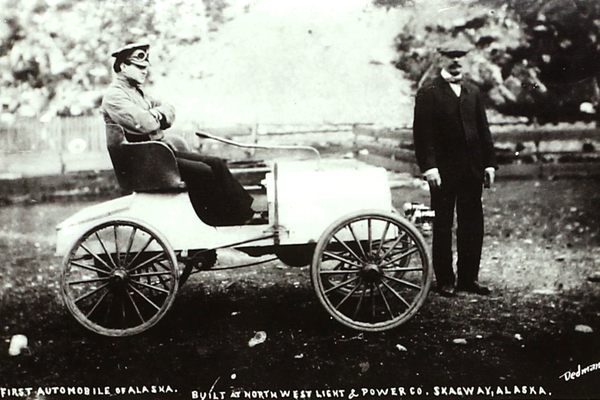The 1930s ‘Pedestrian Catcher’ That Promised to End Jaywalking Deaths
Goodbye, car accidents!
Ever since Londoner Bridget Driscoll became the first pedestrian to die in an automobile accident in 1896, companies have raced to solve the problem of car deaths. The 1930s saw the introduction of a particularly novel solution: the pedestrian catcher.
Also known as the safety scoop and the car catcher, this device was designed to bring pedestrian deaths to a permanent halt. “This Roller Safety Device Sweeps Away Fallen Pedestrian,” declared a triumphant Modern Mechanix headline in 1931, elaborating that it “will literally sweep a fallen pedestrian before it and thus save him from being crushed to almost certain death beneath the heavy wheels.”

According to CityLab, the device featured a “grooved roller” attached to an extension beam on the car. Inactivated, it acted akin to a bumper. But when a pedestrian was in danger of getting hit, the driver needed only to pull a lever, and the grooved roller deployed to the ground.
“A flick of the lever, and the scoop has another mouthful,” the British Pathé narrator says, as the video shows a pedestrian catcher scooping up a jaywalker, demonstrated by one of the inventors. “When the scoop is open, a jaywalker simply can’t get run over, and sometimes that’s more than he deserves.”
The pedestrian catcher, however, was not as foolproof as it claimed. If the car was going too fast, or if the driver didn’t pull the lever fast enough, the pedestrian was in trouble.

Yet the pedestrian catcher of the 1930s is not the only incarnation of this car safety advice. This one from 1927 (pictured above) is perhaps even more impractical.
CityLab also uncovered a “shovel on a car” being tested in Paris in 1924. And still another pedestrian catcher, which trapped people on the hoods of cars, was tested in 1974.
Video Wonders are audiovisual offerings that delight, inspire, and entertain. Have you encountered a video we should feature? Email ella@atlasobscura.com.


























Follow us on Twitter to get the latest on the world's hidden wonders.
Like us on Facebook to get the latest on the world's hidden wonders.
Follow us on Twitter Like us on Facebook